This month is very special because Cervena Barva Press is 15 years old!!!
I can't believe it!!! It has been a wonderful 15 years and the press has brought so many wonderful people
into my life from all over the world. This is just the best! A very special shout out goes to the writing
community in this area. What a wonderful group of writers and artists. I think that no one else in the
United States has what we have here. I am grateful every day that I live here!
Since I had to cancel the party for our anniversary, I decided to wait until next year when the press turns 16.
Then there will be a Sweet Sixteen party!!!! By then, hopefully there will be a vaccine for Covid-19 and life
will not turn upside down for the world. I still can't believe that we all are facing a Pandemic at this time.
It is so sad. So many dead. It is difficult to grasp. Continue to be safe everyone!
A heartfelt thank you to everyone who donated to the press during this Corona Virus crisis. I am so touched by
all the donations and kindness I received from so many. It means so much to me. Thank you!!!! The survival of the
press and bookstore is so important to me. Our sales have been zero and with the bookstore closed, we are in
survival mode. All events will be cancelled for May too. Three months with our space in the Armory closed is rough.
A huge thank you to everyone who has donated books to the bookstore. It is such a big help, and I am so very
grateful. When the store is open again, you must come in and visit. So many books to check out. You will love it!
There are so many wonderful friends of Cervena Barva Press and The Lost bookshelf.
Thank you to the healthcare workers, first responders, volunteers, doctors, nurses, National Guard,
unsung heroes, restaurant workers, counselors, Council of Aging, teachers, respiratory therapists, and
the public who is out there helping those who need it. You all are heroes and angels. If I forgot any
specific group, you are thanked. Not meant to be forgotten!
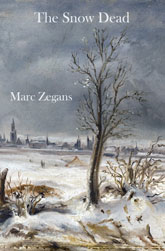
Marc Zegans is a poet and creative development advisor. He is the author of five previous collections of poems,
The Underwater Typewriter, Boys in the Woods, Pillow Talk, The Book of Clouds,
and La Commedia Sotterranea: Swizzle Felt's First Folio form the Typewriter Underground; two spoken word albums Night Work,
and Marker and Parker, and immersive theatrical productions Mum and Shaw, and The Typewriter Underground.
The Snow Dead debuted theatrically in Erotic Eclectic's "Sin-aesthetic" at the Lost Church during
San Francisco's 2019 Lit Crawl. Marc lives by the coast in Northern California.
His poetry can be found at marczegans.com, and he can be reached for creative advisory services at mycreativedevelopment.com.
|
The Snow Dead is a quiet meditation on life and death imagined as a series of marks in the cold snow-where all
color is heightened, and in which even the most subtle register of heat leaves an impression. This gathering of
connected poems elegantly incarnates the gravitas of aging - shorn of artifice and romance - in its barest essence.
"The delicate chill of loss and longing described in bone white visions of isolation
and ember red recollections of intimacy."
-Janice Blaze Rocke, artistic director Erotic Eclectic
Zegans' spare and revelatory collection embraces the paradox and beauty of winter's morbid hold.
It's a magical fascination that plays out with foxes and angels and starlets - startling little stories
that shine and entrance. The Snow Dead is a pure and inspiring joy to read.
-Lo Galluccio, author of Hot Rain and Sarasota VII
$8.00 | ISBN: 978-1-950063-39-0 | 30 Pages
Order Snow Dead here...
|
Karen Friedland interviewed Eileen Cleary and Joey Gould for this newsletter.
We also have some book reviews, raves, and a few Memoriams.

Eileen Cleary founded and hosts the Lily Poetry Salon in Needham, MA and edits the Lily Poetry Review and
Lily Poetry Review Books. Her debut full-length collection, Child Ward of the Commonwealth was released
from Main Street Rag Press in June 2019.
We spoke with Eileen about her journey as a poet, editor and salon host.
About Being/Becoming a Poet:
Q: What started you on your poetic journey? What called you to poetry? What was your most significant "poetic schooling"?
A: I first encountered poetry as a child when I fell in love with Robert Frost and Emily Dickinson. Later,
I found myself drawn to dozens of poets, and then scores more. I've always loved words, how one word can have
so many connotations. I loved how syllables sound together and how groups of words fit it to one another.
I realized that I was a poet during a course on Medical Ethics at Simmons College. I did not know how to
respond to the idea that scientific research had been performed on fragile populations without their consent.
I reacted to The Tuskegee Experiment, in which almost 400 black Americans with syphilis were
offered no medical treatment, by writing a poem. This was transformative, and I could not go back to being
a person who didn't write poetry.
My most significant poetic schooling is ongoing. The MFA degrees I earned at Lesley University and Solstice
of Pine Manor taught me to read as a writer, that the more prose and poetry I expose myself to, and immerse
myself in, the better writer I become. So, I continue to read deeply, as many poems and collections as each
day allows. For me, the MFA programs were so much more than reading a hundred books, studying remarkable works,
writing critical and creative theses, or even learning to interrogate a poem. These programs taught me how to
build a literary community and a rigorous reading practice, where every day, I am in conversation with poetry
and craft, bridging to all the poets I've read before and all I've yet to read.
Q: Tell us a little about your poetic practice-what inspires you to write a poem? How do you prefer to work?
A: I have a practice of reading more than a practice of writing.
I usually write alone and when I feel an "energy" to write. Most of the time, I have no idea
what I'll be writing until I start, but the poems start with an image. And they never start on
the page, they have been going on in my head for a while before I sit down to write them. I usually
write and revise poems off-page and then do the secretarial work of writing them down.
The final edits take place on the page.
Q: Which poets, contemporary or otherwise, have most inspired you? What quality of their poetry speaks to you?
A: Some of the authors I return to over and over are Kathy Nilsson, Lucie-Brock Broido,
Alice Monroe, Margaret Atwood, Emily Dickinson, Marie Howe, Wislawa Szmborska,
Louise Bogan, Sylvia Plath, Robert Frost, Gary Soto, Laure-Anne Bosselaar, Jean
Follain, W.S, Merwin, Richard Wilbur, Franz Wright, Jack Gilbert, Louise Gluck, Rhina
P. Espaillat, Paul Celan, Tomas Transtromer, Czelaw Milosz, Charles Simic, Ilya
Kaminsky, Gwendolyn Brooks, Martha Collins, William Carlos Williams , Cate Marvin,
Jason Reynolds, Kevin Prufer, Nicole Terez Dutton, Seamus Heaney and Erin Belieu. And now
I'm heartbroken, because I can't name them all.
If I had to choose a poet to mention more about, I would say that Lucie Brock-Broido influences my work with her
teaching, her ideas about feral poetry and each poetic line being a "station of the cross." She taught me about
poetry by watching a fire and listening to a grandfather clock's metronome. Someday, I will write that craft essay.
Q: What other art forms or life experiences have informed or influenced your work?
A: My life experience as a nurse and volunteer in Appalachia has fueled my work.
I'm inspired by people and the lives they lead, their challenges and triumphs.
Nature inspires me, and its art is unparalleled.
Questions About Being/Becoming an Editor:
Q: Tell us what inspired you to first start a literary salon, a literary magazine, and
then a press? Tell us a little about the process of founding and running all three.
What are some of the challenges and rewards, thus far? Do you have any tips you'd give
others who are thinking of starting up a salon, press and/or literary magazine?
What are you doing that feels unique?
A: The Lily Poetry Salon started because a group of my friends wanted to meet regularly and talk
about poetry. At first, we thought we might form a private workshop, but that seemed to be about
work and not as much pure joy. My friends Christine Jones and Robbie Gamble talked about how we
could continue to get together and enjoy poetry. We were meeting at the poet Mani Iyer's home.
Mani is a deaf-blind poet from Needham, who attended Lesley University with me. We thought,
why not bring readers to Mani's to read from their works, socialize and then, talk about their poetry.
At that time, we were all just finishing up our MFA program and we were hungry for those conversations
with "established" poets. Four years in, we still are.
I'd been fantasizing about starting a literary magazine for about five years before Lily Poetry Review.
I imagined being able to include beautiful poems of various aesthetics in the journal. I put the idea
aside and worked as an Assistant Poetry Editor at Carve Magazine. I learned a lot in that position and
knew I'd like to run a journal that focused on poetry. It then seemed logical next step to start the
Review. I expanded into publishing books because there are so many unpublished, beautiful and deserving
manuscripts. I wanted to be a part of putting them into the world.
As absurd as it sounds, the challenges have been few. They are mostly financial. We are a volunteer press,
and Amazon and other outlets take the lion's share of any profit on each book. There is no profit with the
journal. I can't bring myself to call that a loss, because I get so much satisfaction from publishing and
joy in putting this art in the world.
The most rewarding part of publishing is the team of people I have been blessed to have working beside me.
Christine Jones, Lisa Sullivan, Renuka Raghavan, Julie Cyr, Chell Navarro, Elizabeth Mercurio, Michael Mercurio,
Suzanne Mercury, Sarah Walker, Kay Bell, Konner Jebb, Mark Jednaszewski, Rebecca Connors, Anastasia Vassos,
Martha McCollough, and Tzynya Pinchback each contribute their considerable talents meaningfully to Lily.
One thing that distinguishes this press is its attention to detail and editing. What we are most proud of
is making space in the literary community for writers to debut their work.
If you are thinking of starting a press or journal, I want to share the advice Nicole Terez Dutton gave
to me when I shared my dream of becoming an editor and publisher. I had just finished listing for her,
all ways which I would turn myself inside out to become "good enough" to start a press. She said,
"You are already enough."
Q: As an editor, what draws you to a certain poem that makes you want to publish it? As a press,
how do you find great work? Can you tell us about recent and upcoming publications?
What about upcoming readings at the salon?
A: I tend to respond to concision, strong imagery, and a distinct voice that has a
life beyond the page. We find great work through submittable, where folks can submit
poems, flash fiction and art for the journal or chapbook and full-length poetry books.
https://lilypoetryreview.blog/submission-guidelines/
I have also attended readings where I have been so mesmerized, that I was compelled to ask people for their
manuscripts. This happened with Christine Tierney's debut, chicken + lower case = fleur, due out in March 2020,
and Miriam O'Neal's second collection, The Body Dialogues, out in January 2020.
Heather Hughes and Andrea Read will feature at our salon on December 5th. Upcoming authors and artists
include Valerie Duff, Jennifer Jean, Sebastian Jean, Joey Gould, Enzo Surin, July Westhale, Steven Cramer,
Joyce Peseroff, Kathleen Aguero and many others.
Q: How do you see the Lily series within the literary community in the Boston area,
the country and internationally? What are your feelings about the state of
"the literary community" right now?
A: I see the Lily series as a small and growing voice in the literary community.
We will continue to grow and expand at a rate that suits us. The literary community
will recognize our hard-working and talented authors. We are proud of our literary
citizenship and awestruck by our poets. I see the literary community in Massachusetts alive and
flourishing. It is a sanctuary and a resistance, and filled with generous and talented people
who will keep it vital for years to come.
Joey Gould is a non-binary poet who tutors and works with Mass Poetry and the Poetry Society of New York.
Their first full-length collection, The Acute Avian Heart, was recently the first book published
by Lily Poetry Review Books.
About Being/Becoming a Poet:
Q: What started you on your poetic journey? What called you to poetry?
What was your most significant "poetic schooling"?
Joey: I wrote as a teenager, then stopped until I took a poetry class in college as an elective.
Alan Feldman, my professor, introduced me to the work of Louise Gluck & I fell in love.
At the end of the class, he suggested we all apply to a summer poetry fellowship at Salem
State University run by J.D. Scrimgeour. I somehow earned a spot, met a bunch of poets
who took me seriously, started writing more & sorta went from there! Without the Salem
Poetry Seminar & those workshops at the Salem Athenaeum I don't think I'd ever have "become a poet."
Q: Tell us a little about your poetic practice-what inspires you to write a poem? How do you prefer to work?
Joey: I like to get out of the house to write-I write in bars, at Audubon sanctuaries, at beaches.
I like weird prompts, like asking my Facebook friends to give me a first line to use.
In a very me moment, I overheard a barista say "I love my liver, I respect my kidneys" & used
it to write a poem that was published by District Lit! Big picture, I'll often write sets of
poems or long poems that share a theme, which was quite handy for writing my book, TAAH-I built
it section by section, rather than poem by poem in one giant arc.
TAAH makes sense as a Virgo: organized & modular.
Q: Which poets, contemporary or otherwise, have most inspired you? What quality of their poetry speaks to you?
Joey: e.e. cummings was my first love & he has a poem with my full name-joe gould-in it! He's delightfully weird.
On the other hand, I like how Gluck cuts so deep, so earnestly. Marie Howe is also wonderful
like that-I don't think she lets craft get in the way of the sincerity of her words. Craft
should be a tool, not a window-dressing. I also have intersectional role models:
Tommy Pico's work is fierce & hilarious & troubling, writing about indigenous heritage,
gender & sexuality. July Westhale sticks with me as a femme genderqueer
whose work intersects feminism, grief, & LGBTQ+ activism. Every poem of Westhale's is an
absolute haymaker of imagery.
Q: What other art forms or life experiences have informed or influenced your work?
Joey: I am playing my TAAH Spotify playlist right now as I type this. I love, love, love music.
I revise to music a lot, mostly Shoegaze & sad pop music, some Brat Pop. Also, much of the older
stuff in TAAH was written at karaoke, if you can believe it! I mention the karaoke place in one
of the poems. My poetry comes from places I've been & people I have loved. I think about place a
lot, for sure. Israel, the beaches of Gloucester, parks: these places help me see clearly. I often
drive by the house I rebuilt with my stepfather, Frank. I can still see the inside of it, I can
still hear Frank, I can see him cutting tile.
Q: Speaking of community-can you tell us more about your work with Mass Poetry as well
as your experiences as a poet-performer with the Poetry Society of New York's "Poetry Brothel"?
Joey: Mass Poetry has been such a boon for me. I've gotten to meet some of my idols while throwing
a poetry party for 1,200 people. I've also taught children the poetry I wish I knew when I was their age.
And even better, I've met some of my dearest friends through Mass Poetry. I think their mission is
integral to the arts & to Massachusetts, but mostly I'm just grateful that I've been in a position
to help them along the way.
I love the PSNY Poetry Brothel! It's a wild idea, one of my most favorite modes of performing.
It's taught me a lot about how to perform. I also value the vulnerability of being nearly naked
with a spotlight on me, though I could never do it for longer than three poems. It forces me to
consider how I feel about my own body-I confirmed through acting a transgender character,
Izzie Hexxam, that I am non-binary. PSNY events are always safe spaces & every Brothel event
raises money for actual sex workers-we try not to be appropriative either.
Thank you both, so much, for answering these questions, and for the great work that you do!

Review of Poems for the Writing: Prompts for Poets by Valerie Fox and Lynn Levin
If you're a poet seeking a cure for writer's block or ways to breathe new life into your work, look no further
than the just-published second edition of:
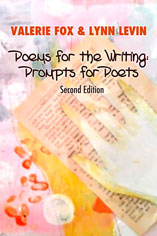
Poems for the Writing: Prompts for Poets
(Texture Press, 2019, ISBN 978-1-94-578408-8, 146 pages)
by Valerie Fox and Lynn Levin.
Try your hand at a crossroads poem, in which the crossroads can be an actual roadway intersection
or a change point in life. Write a poem about an imaginary encounter with a person you admire, and
let that encounter be weird. Try a superhero poem or a thank-you poem in which the thanks can be
grateful or sarcastic.
This very user-friendly second edition builds on the success of the original and is completely
revamped with new prompts and scores of new example poems. The example poems, some hilarious,
some reflective, some heartbreaking, show you just what a strong prompt can help you produce.
Each prompt in Poems for the Writing: Prompts for Poets includes an introduction, suggested
approaches, and example poems written by undergraduates, workshop participants, and working
poets-a formula that stokes the desire to write and illustrates the imaginative possibilities.
Some of the prompts court free verse and hybrid forms, such as prose poetry and flash fiction.
Others invite structure, albeit structure set loose to experiment and play.
The five-line syllabic cameo cinquain, for example, includes instructions for a get-to-know-you
version that can be used as an icebreaker in a classroom or writing workshop.
Other prompts give classical motifs a contemporary twist. Consider the paraclausithyron,
a lover's lament from outside a closed door, then imagine arriving at the door of your
favorite restaurant only to discover that it's no longer in business, or call to mind an
Alex Forest-type character (the role played by Glenn Close in the film Fatal Attraction)
standing outside a closed door ("I mean, I'm not going to be ignored, Dan").
How about a faux translation of a poem written in a language you don't know?
There's a treasure trove of thought-provoking, imagination-igniting ideas in this
valuable resource for beginning and experienced poets alike. It's also the perfect
book for writing instructors eager to motivate their students and expand students'
understanding of how poems are created. A writing instructor in search of an affordable
and very contemporary guide to writing poems will find the second edition of
Poems for the Writing: Prompts for Poets especially handy and easy to use.
In fact, Fox and Levin are teachers and practicing poets themselves, and, as
the introduction notes, they extensively tested the prompts in classrooms and
workshops and among their writing peers before including them in the book.
If you're a writing novice in search of guidance or a veteran writer looking
for new ways into the craft or a teacher in search of a how-to manual and poetry
anthology combined into a single easy-to-use handbook, you'll find that this
craft-of-poetry guide is a choice that will pay creative dividends and give
much pleasure along the way.
Michelle Moore is the author of two poetry chapbooks: The Deepest Blue (Rager Media)
and Longing for Lightness: Selected Poems of Antonia Pozzi Translated from the Italian
(Poetry Miscellany Press). Her poems, interviews, and reviews have appeared in many publications,
including Commonweal, Heavy Bear, Apalachee Review, Black Dirt, Rattle, Penguin Review,
and White Ink: Poems on Mothers and Motherhood published by Demeter Press.
I love this review that Scott wrote about a book published
by Cervena Barva Press and wanted to publish it.
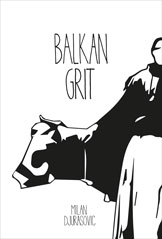
Balkan Grit by Milan Djurasovic
Review by Scott Thompson
Balkan Grit begins with a strong entry, simply titled "Retribution," in which the narrator tells the
story of his childhood rival and bully, Petar, whose troubled childhood works to humanize his character,
yet the death of his parents and his subsequent living situationwith his grandparents, is told with a tone
of normalcy as if to make the bleak reality of a parentless household and strange relatives a common occurrence.
The sad realities of a broken community are simply a backdrop for the story taking place, though, as
"Retribution" focuses on the ridiculously humorous and impulsive scheme the narrator creates to exact
his revenge on his childhood bully by failing to seducing his grandmother, then resorting to vandalizing
his room in an act of juvenile, poetic justice.
Djurasovic's unique writing creates an aura of ordinarity around strange and fascinating
situations that he has witnessed or been a part of. He is able to convey just how normal the abnormal
is in a community that is still trying to find sure footing in an era where the future is uncertain.
His firsthand accounts present the absurd as an everyday occurance, an annoyance to be expected as
people drift through their lives, and yet he realizes these stories are something that speaks to a
broader audience than his small Bosnian village where most of these take place.
More introspective than his firsthand accounts are the stories told through him. Stories of universal
human struggles, finding their place in the world, being unable to adapt to a changing world, all told
through the lens of real, or at least convincingly real, people.
One story stands out to me in particular because it encapsulates the heart of
Balkan Grit like no other. "She Was a Good Guy" is a story of two loud-mouthed, oblivious, old men told
through Djurasovic as he eavesdrops on their conversation. The two men have a much more traditional mindset
than those around them. They discuss current affairs and renounce immigrants, but the tone shifts when
one of the men denounces homosexuality as "foreign scum." As it turns out, a female cousin of the other
man that grew up with them in their village was openly pursuing a woman. His next words,
"they are not an import," is not only powerful enough to quiet the other man, but was enough to make
me pause in my own reading. The distinct mixed opinions of the two signal the changing times and the
uncertainty of what the future may hold as the two men decide to change the subject and focus on the
present, namely their lunch.
Order Balkan Grit here...
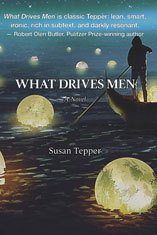
Review of WHAT DRIVES MEN, a Novel by Susan Tepper
Wilderness House Press
This review appeared on Amazon and Good Reads
Used by permission.
The idea of travel and picaresque connects with Tepper's earlier fiction, but here the male perspective (s)
are new, delightful, and uncanny ("What is it with these women?" Russell was thinking..."Why do they always have
to emasculate the male?"), and the landscape is American, ironically recalling all sorts of road trips West,
from Grapes of Wrath (and Travels with Charley) to On the Road. I love the characters-Russell as the Gulf war
vet and long-distance driver from New Jersey; the decrepit country and western music star, Billy Bud Wilcox,
being driven to Colorado; and the three free-loading Gen-Xers they pick up in an Ohio "cowboy bar," the
doper Tad, and two drifter girls, Sonia and Peaches. The dialogue and ensemble voices are lively and
authentic-enough so that again, as a Tepper fan, I can easily imagine this novel as a feature film,
where Clint Eastwood would make a great Billy. Along with steadily diverting encounters and complications
on the way, the characters all have depth and vanishing points, and while Billy's story is framed from the
outside, Russell's is a warming back to life.
-DeWitt Henry, founding editor of Ploughshares
Susan Tepper is the author of nine published books of fiction and poetry. Her most recent is a
chapbook of poetry titled CONFESS published this month by Cervena Barva Press. Last June her road novel
"What Drives Men" was published by Wilderness House Press, and shortlisted at
American Book Fest Best Book Awards. Other honors and awards include eighteen Pushcart Nominations, a
Pulitzer Prize Nomination for the novel "What May Have Been" (Cervena Barva Press, and currently being
adapted for the stage), NPR's Selected Shorts Series, Second Place Winner in Story/South Million Writers Award,
Best Story of 17 Years of Vestal Review, Shortlisted 7th in the Zoetrope Novel Contest (2003),
Best of the Net and more. Tepper is a native New Yorker.

These are three recent books I absolutely loved and recommend. To order, please go to the presses and
order from them. Support the small independent presses.
Thanks, Gloria
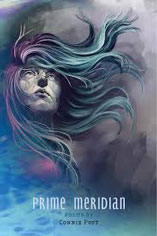
Prime Meridian by Connie Post
Glass Lyre Press, 2020
These poems are of a seer - unwrapping time, being, the Change we are igniting.
The considerations are hard won - who we are, what is coming upon us in this age, the passage
we are entering and the exit - the seer knows it. There are no exhortations, no longings for
forecasts,only the seeing and the forthcoming Being that envelopes us more and more "until all that is left of us."
We need this wisdom book, clear elixirs from the Source. True mind-beauty, caved with humanity - beam,
everyone must touch this volume in order to traverse the present age, Bravissimo.
-Juan Herrera, 21st Poet Laureate of the United States
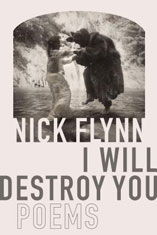
I will Destroy You by Nick Flynn
Graywolf, 2019
The newest collection from Nick Flynn, whose "songs of experience hum with immediacy" (The New York Times)
Beginning with a poem called "Confessional" and ending with a poem titled "Saint Augustine," Nick Flynn's
I Will Destroy You interrogates the potential of art to be redemptive, to remake and reform. But first the
maker of art must claim responsibility for his past, his actions, his propensity to destroy others and himself.
"Begin by descending," Augustine says, and the poems delve into the deepest, most
defeating parts of the self: addiction, temptation, infidelity, and repressed memory.
These are poems of profound self-scrutiny and lyric intensity, jagged and probing.
I Will Destroy You is an honest accounting of all that love must transcend and what
we must risk for its truth.
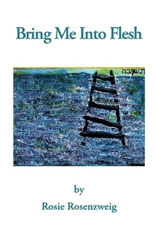
Bring me into the Flesh by Rosie Rosenzweig
Ibbetson Street Press, 2020
"To recognize Jewish history is to acknowledge human history. Understanding Rosie Rosenzweig's poetry
is comprehending the love of parents, children, and others in what may appear complex but in the end,
is an important journey no matter one's age or religion. This volume of poetry will make you glad Rosie
Rosenzweig wrote it."
-Zvi A. Sesling, Brookline Massachusetts Poet Laureate

On January 31st, Bruce Lader passed away. It still is a shock. I published a poetry book by Bruce in 2014 called
"Fugitive Hope." In 2014, I read with Bruce and Harry Calhoun at Quail Ridge Books in Raleigh, NC. It was such a
nice evening. That night I also met Bruce's wife Renata. They both were so sweet and kind.
My heart goes out to Renata, Bruce's family, and his friends.
Rest in Peace dear friend...
Harry Calhoun passed away in October, 2015. A huge loss. That was a shock too. So weird to think of such
wonderful poets, that I read with, now gone. This is such a huge loss for the writing community.
George Kovach passed away from Cancer. He was editor of Consequence Magazine. He was such a wonderful
person and great writer. This is a sad loss for the writing world. There was a beautiful write-up in
the NY Times. Here is the link:
https://www.legacy.com/obituaries/nytimes/obituary.aspx?n=george-stephen-kovach&pid=195990985
I was on a small press panel many years ago with George. He was the type of person who was always genuinely
happy to see you. He will be missed. Rest in Peace George...

Cervena Barva Press Staff
Gloria Mindock, Editor & Publisher
Flavia Cosma, International Editor
Helene Cardona, Contributing Editor
Andrey Gritsman, Contributing Editor
Juri Talvet, Contributing Editor
Renuka Raghavan, Fiction Reviewer, Publicity
Karen Friedland, Interviewer
Gene Barry, Poetry Reviewer
Miriam O' Neal, Poetry Reviewer
Annie Pluto, Poetry Reviewer
Christopher Reilley, Poetry Reviewer


If you would like to be added to my monthly e-mail newsletter, which gives information on readings,
book signings, contests, workshops, and other related topics...
To subscribe to the newsletter send an email to:
newsletter@cervenabarvapress.com
with "newsletter" or "subscribe" in the subject line.
To unsubscribe from the newsletter send an email to:
unsubscribenewsletter@cervenabarvapress.com
with "unsubscribe" in the subject line.

Index |
Bookstore |
Our Staff |
Image Gallery |
Submissions |
Newsletter |
Readings |
Interviews |
Book Reviews |
Workshops |
Fundraising |
Contact |
Links
Copyright @ 2005-2020 ČERVENÁ BARVA PRESS - All
Rights Reserved

